Momma Interviews "Expert Edition" featuring Jennifer Moyer
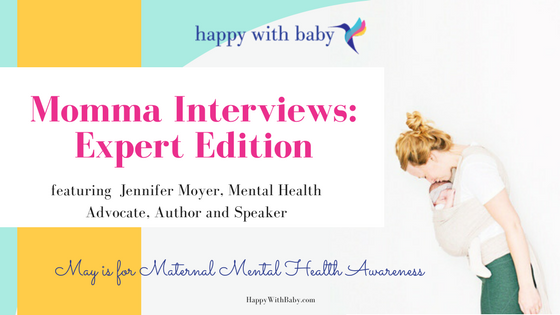
May is Maternal Mental Health Awareness Month, so I've relaunched my "Momma Interviews" series--This time with an extra special set of moms. These mommas also work to support other moms and their families during the transition into new parenthood and beyond. I'm calling it the "Expert Edition", but I think you'll find that while these women definitely are experts in their work, parenthood has a way of making a beginner out of everybody. Even experts get surprised by the unexpected and learn new bits of wisdom while in the trenches!
This series is all about their experiences with motherhood, in the hopes that it provides you with some validation and new tips to try. Because for all the many different ways there are to be a mom (and there are definitely MANY ways to do it right), it's so amazing how much we moms all really have in common.
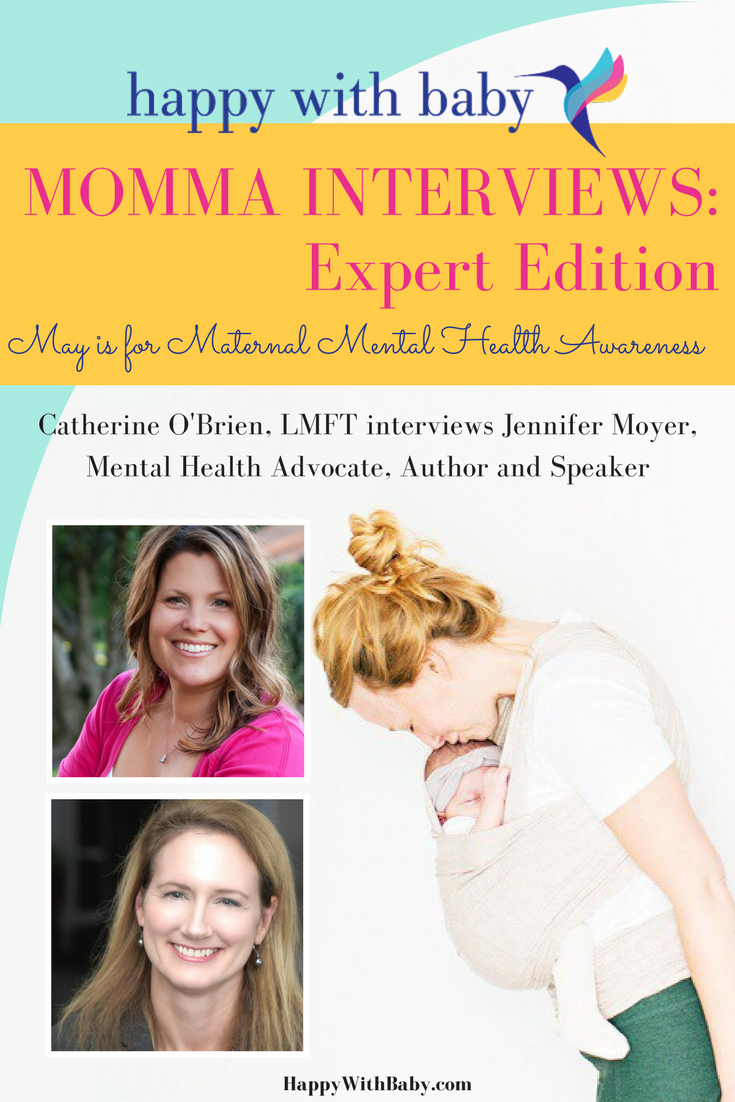
Mommas, I'm so excited to share this interview with Jennifer Moyer with you!
Jennifer is a mental health advocate, speaker, and author of the book, A Mother's Climb Out of Darkness: A Story About Overcoming Postpartum Psychosis.
Scroll down to watch the interview, read the transcript or learn more about Jennifer.
Get to Know Jennifer:
My Unique Family Make-Up:
Married with 1 adult child and 2 furry pets :)
How has your relationship with your partner changed? How has it stayed the same?:
Grown despite the challenges and near divorce. With hard work, prayer, therapy and support will be celebrating 30 years married in 2018. Living your vows is tougher than saying them.
What is your favorite song that inspires you as a mom?:
My son's guitar playing.
What is your favorite maternal mental health resource?
Postpartum Support International
Watch the Video:
https://www.youtube.com/watch?v=X7cmJvIv6HI&w=854&h=480
Jennifer's Quotables:
Interview Transcript:
Catherine: Hey there! Happy Wednesday to you all. I'm Catherine, at Happy With Baby, and I'm really excited. We're having a few little technical glitches, I think, it's here on my end, trying to connect with Jennifer Moyer, who's a mental health advocate, a speaker, and she's also the author of "A Mother's Climb Out of Darkness." So I'm really excited to be able to connect with her, and she can share about her powerful book, and the work that she does, and her experience. I know she has a lot of wisdom for moms and even their partners and their family members ... Support wise and stuff.
Catherine: Thank you for being here. I'm so excited to be able to talk with you. Finally, in person, I know we've tried to connect for over a year now, so I'm excited that we're finally able to do this.
Jennifer: Gosh, I guess it has been that long. Yeah, well. Last year was a rough year, and perimenopause is not fun either.
Catherine: No. No, I'm so glad that you could be here. Can you share a little bit about your experience, and how you kind of got into doing the work that you do, and why you decided to write your book.
Jennifer: Well, I worked in healthcare marketing, and when my son was born, November 1995. You know, it was a long, difficult labor, got through it, educated myself on everything that could happen, I thought.
Catherine: Yeah.
Jennifer: And had great support. I didn't know what a postpartum doula was then, but my mother helped, even though he came early, and I had a sister in Detroit that was able to drive down an hour to help out in the beginning. So my mom was there for six weeks, and she was like a postpartum doula. I considered her an expert, having had babies, eight babies herself.
Catherine: Yeah. That's an expert.
Jennifer: And I had a lot of support. You know, meals from friends, everything but I had planned to go back to my career as a director of a program and loved my career. But when I held that baby, I couldn't put him in day care. And my husband and I said whoever was making more money, the other would stay home. And he was still making a little more money. So, I didn't think about all of the isolation, because my support system and everything with my career.
Catherine: Yeah.
Jennifer: I had a great team, and you know, I had friends, but they were further away. And you know, so the isolation, I just ... I hadn't really prepared myself for. And the way the fear came on suddenly out of nowhere because my sleep, he started sleeping through the night.
Catherine: Okay.
Jennifer: Which was great, should have been nice. Breasts, I had a really bad scare with breast engorgement postpartum. In fact, a lactation consultant that we had to hire ourselves.
Catherine: Mm-hmm (affirmative).
Jennifer: After one full night, she said it was the worst case she'd ever seen.
Catherine: Oh wow.
Jennifer: You know, so we had to rent, at our cost, an electric pump, and you know, so we had lots of breast milk, which we didn't realize that it would come in handy later unfortunately, for the reason it did.
Catherine: Mm-hmm (affirmative).
Jennifer: At about six weeks, I started getting more irritable, and you know, I wasn't sleeping through the night. I would wake up and express milk, and you know, relieve it. It just started a pattern of not sleeping well.
Catherine: Mm-hmm (affirmative).
Jennifer: And my mom had to go back to her home state, and I love my mom, I wanted to do it on my own, and mixed feelings about that. So, my husband had to go back to his nighttime working job. So, I was never afraid to be home alone at night before.
Catherine: Mm-hmm (affirmative).
Jennifer: But you know, you have this human life you're responsible for. It changes things, you know?
Catherine: Yeah, yeah.
Jennifer: So, I had this sudden fear that came out of nowhere. It wasn't a real, concrete fear, no evidence, that it caused me to not sleep. So after three nights without sleep, it became a medical emergency, you know. My husband knew something was not right. But ... You know, we didn't know!
Catherine: Mm-hmm (affirmative).
Jennifer: Baby blues, my sister actually had prepared me for that. I had read a little bit about postpartum depression.
Jennifer: You know, it's been a few years ago, my son's 22 now.
Catherine: Yeah.
Jennifer: Nothing existed even mentioning postpartum psychosis.
Catherine: Right.
Jennifer: So, thankfully, horrible experience, you know. That's how I was introduced to mental health. I didn't even know it existed.
Catherine: Mm-hmm (affirmative).
Jennifer: When I had to be forcibly hospitalized and, you know, my nightmare of someone trying to kill me, and take my baby-
Catherine: Mm-hmm (affirmative).
Jennifer: I was so motivated to get back to my son. I was able to continue pumping. The doctor said I had postpartum depression. I didn't completely trust her so I actually reconstituted, I was not taking the medication.
Catherine: Okay.
Jennifer: But my goal was to be at home to that baby and my family, so I was discharged after about four nights, I think it was. And then, no, not completely breastfeeding and everything-
Catherine: Mm-hmm (affirmative).
Jennifer: The strain of that, so about two weeks later I had another ... Now, what I know is a break from reality. I never did really sleep well.
Catherine: Mm-hmm (affirmative).
Jennifer: And at that point, my family all intervened, and got a second opinion from a wonderful clinician who actually gave me the title ... That I had an illness called postpartum psychosis.
Catherine: Mm-hmm (affirmative).
Jennifer: And I was like, relieved. Because, you know.
Catherine: Yeah.
Jennifer: I didn't know what it was. I'd never done illicit drugs. The paramedics and everybody thought I was on drugs. Thankfully, my family, you know, the support I had, realized that that was not the case. Even though they were taking me forcibly to the hospital, and they still wanted my husband to take the baby to the ER to do a drug test.
Catherine: Oh wow, yeah.
Jennifer: It's a little crazy. But this of course, I all learned much later. So we got that diagnosis. And then I was like okay-
Catherine: Mm-hmm (affirmative).
Jennifer: This makes sense. I have an illness. I can take medication. So I stabilized from that-
Catherine: Mm-hmm (affirmative).
Jennifer: From the psychosis pretty quickly after that. And, the interesting thing is, you know, I'm doing this work. Way back then, the doctors said me having bacterial meningitis at nine years old played a role in it for me.
Catherine: Oh really?
Jennifer: Yeah. Not that you know, there was really research or anything, especially in this country.
Catherine: Yeah.
Jennifer: So then it turned into, which it often does, in my case, the isolation, I had the support but nobody really understood.
Catherine: Mm-hmm (affirmative).
Jennifer: You know, what it was like. And then, it was not like it is now.
Catherine: No.
Jennifer: So it led into depression.
Catherine: Yeah.
Jennifer: Knowing that I had the trauma of everything that happened to me on top of it.
Catherine: Mm-hmm (affirmative).
Jennifer: Again, I had great support. You know, I have a big family, we're spread out though. You know, I went home for a little while in Pennsylvania with some family, but then I missed my husband. So you do the best you can.
Catherine: Right.
Jennifer: If you don't know, or understand what it was all about.
Jennifer: But, so anyway, you know, the depression, you know, with a lot of bitterness, you know, with medications and everything. And I didn't realize, some of it I just didn't realize as much until I gathered all my medical records to write the book. And, you know, it's a miracle I'm here.
Catherine: Yeah.
Jennifer: You know, I had a panic attack, which I now know what it was.
Catherine: Mm-hmm (affirmative).
Jennifer: In April '97. My son was a little over a year, and it was like an out of body experience, really. I don't completely understand it, but-
Catherine: Mm-hmm (affirmative).
Jennifer: I was impatient, I just wanted to sleep, get out of this-
Catherine: Yeah.
Jennifer: The fear and everything. And I survived that.
Catherine: Yeah.
Jennifer: And my husband has been amazing and continues to be.
Catherine: Yeah.
Jennifer: And he had a sense something wasn't right and then he called me.
Catherine: Mm-hmm (affirmative).
Jennifer: It was just so bizarre. And, the last thing I remember is he called me, and said, "Is everything okay?" And I told him what I did, and that's the last memory I have.
Catherine: Yeah.
Jennifer: So, you know, I'll obviously talk more about the book.
Catherine: Yeah.
Jennifer: It's a miracle. It wasn't until my son was four-
Catherine: Mm-hmm (affirmative).
Jennifer: When I reached out, and really learned more about Postpartum Support International.
Catherine: Mm-hmm (affirmative).
Jennifer: And that point, the founder, Jane Honikman was still answering the phones.
Catherine: Yeah.
Jennifer: And, so, I talked to her, and it was just wonderful.
Catherine: Yes.
Jennifer: And she's like, you know, "If I can just help one person, it'll all be worth it."
Catherine: Yeah.
Jennifer: So in the early 2000s, I was the coordinator of my area.
Catherine: Okay.
Jennifer: It was really, I mean she's amazing, still.
Catherine: Yes, yeah.
Jennifer: I was able to do a training with her with her Postpartum Action Institute while the first classes in January, 15.
Jennifer: I'm a Jane groupie.
Catherine: Yeah, yeah.
Jennifer: Anyway, so then I started learning about you know, all this.
Catherine: Mm-hmm (affirmative).
Jennifer: And I was like, "Oh, my God!"
Catherine: Mm-hmm (affirmative).
Jennifer: So you know you kind of get this ... I call it righteous anger-
Catherine: Yeah.
Jennifer: But it's like, "Okay, tackle this. That's like a marketing problem." That's what my degree is, and I'm like, "Okay."
Jennifer: I didn't realize how complicated it was.
Catherine: Right.
Jennifer: So, but in 2005, 'cause, you know, my body didn't handle stress like it did ever again, really.
Catherine: Mm-hmm (affirmative).
Jennifer: I was actually at a conference in New York. And no proof, but I'm pretty sure I had a very early miscarriage.
Catherine: Mm-hmm (affirmative).
Jennifer: But ,through that process, I actually got see an expert.
Catherine: Okay.
Jennifer: And that was when they said, "Okay, this could be what they call Bipolar Disorder, Postpartum Onset."
Jennifer: So, again, I was like, "Okay.
Jennifer: You know, before that I was always trying to get back to my healthy self,
Catherine: Yeah.
Jennifer: Before, and so, you know, that's how I started getting treated for that.
Catherine: Okay.
Jennifer: And, you know, to this day, that's the path I'm under, although yeah, I had a lot of trauma last year ... Perimenopause, another journey.
Catherine: Right, right.
Jennifer: You know, I ... you know, eight to ten years, they said. But, my gynecologist, you know, confirmed that I'm in that stage.
Catherine: Mm-hmm (affirmative).
Jennifer: Women out there, we're paying honor every day! Never quite. Oh, it's gonna be a period or not.
Catherine: Yeah.
Jennifer: So, that's when, you know, stuff like medication that they once they gave me to help with sleep, when I was working on a manuscript in March, 2014. I was, you know, it's a little sleep deprived.
Catherine: Mm-hmm (affirmative).
Jennifer: And I took it and I was the paradoxical effect. But, of course, every time I had a relapse, it's always, you know, medication.
Catherine: Yeah.
Jennifer: So, there's been a lot of trauma, and everything in the last two years ... Or seventeen, and then everything. I finally have a great team of providers. I mean, I did too, over that time but, that it's actually looking more for the root cause
Catherine: Okay.
Jennifer: This provider says, "You know, with psychiatric illness, it's a lot of symptom treating."
Catherine: Yeah.
Jennifer: And, I actually, you know, I've been wanting to get some testing done again. I had some done in 2006. And, so, at this point, I'm on a medication that just really ... I, physically saw the difference when they started me on in April 2017. First time.
Catherine: Yeah.
Jennifer: Yeah, and my brain. I was getting a lot of head pressure.
Catherine: Mm-hmm (affirmative).
Jennifer: And my body gets to this seizure, when I get stressed.
Catherine: Okay.
Jennifer: So, at least physically when I break down, that's what happens, so...
Catherine: Mm-hmm (affirmative).
Jennifer: Anyway, save that for book two.
Catherine: Right, yeah. There's a whole another book in there.
Jennifer: But yeah, I know, I'm throwing a lot of information, there's a lot of information there.
Catherine: Yeah.
Catherine: Well, I do have a question. You brought up, like the support of your husband and stuff. What do you ... Like is there something that you think that you would want moms or their partners to know, that would be helpful? Like, you said your husband knew like something wasn't right. And I've heard that from dads that I've seen in my office, and they're like, "I knew something wasn't right."
Catherine: And, like, not knowing, like how to bring it up, or what to say. What would ... Like, do you have recommendations for that?
Jennifer: Well, to me I mean the best thing is to be talking openly about it
Catherine: Mm-hmm (affirmative).
Jennifer: So, in there, doing a coordinator. I did some consulting work with the local hospital, and I went in and talked to the childbirth classes. That's why I am a member of Kappa Childbirth and Professional Association.
Jennifer: I was actually certified or a short time.
Catherine: Okay.
Jennifer: In the early 2000s. And then, my mom passed away, suddenly, you know
Catherine: Mm-hmm (affirmative).
Jennifer: It's change. But, you know, we have to talk openly about these things, you know. That's why when I wrote the book ... You know, I originally ... I had a little bit of publicity from the tragedy.
Catherine: Mm-hmm (affirmative).
Jennifer: That happened in Texas. [inaudible 00:17:46]
Catherine: Mm-hmm (affirmative).
Jennifer: The freelance writer I learned some things, and that never should happen.
Catherine: Yeah.
Jennifer: And if there was such a thing as psychiatric medical malpractice, you know, in my opinion, that ... And it's just hard.
Catherine: Yeah.
Jennifer: You know, psychiatric, no wrong leg operated on, there's no nothing like that. So, talking openly, and yes, you know, the statistics are always one to two out of a thousand births.
Catherine: Yeah.
Jennifer: When I was doing research, one to four ... Some of us that are, you know, survivors, or whatever you want to call it ... Overcomers. I'd like, you know, we think as the stress and the pressure.
Catherine: Mm-hmm (affirmative).
Jennifer: Because back, then I had a friend who had a psychology background, and she's like, "You know three days without sleep. It's like ..."
Catherine: Mm-hmm (affirmative).
Jennifer: So, it's more and more pressure on women I think, in this country, you know, especially ... There's hardly any maternity leave.
Catherine: Yeah.
Jennifer: And when we can't afford working more than one job. You know, there may be a single mom, and-
Catherine: Yeah.
Jennifer: Which is why I'm so excited that you reached out to me because, if I had to put anything ... Therapy is what saved my family.
Catherine: Yeah, yeah.
Jennifer: And the right kind of therapy. Yes, the medications may have addressed the physical problem, but having a therapist that understood. Because, you know, ironically I talked about in the book ... I was, you know, having these ups and downs and everything, and when I had a panic attack at my dad's once ... One year when I was just trying to ... I've had electroconvulsive therapy, and I would have done whatever anyone wanted me to do.
Catherine: Right.
Jennifer: But, through that process, I got to a hospital near him, that I had a female doctor, for the first time, and she was a mother of twins. And the connection was there! She actually listened to me.
Catherine: Yeah.
Jennifer: And the others didn't get it.
Catherine: Right.
Jennifer: I get it. You have to be a female. But, it ... If some unique things you just don't know.
Catherine: Right, right.
Jennifer: Unless you live through it.
Catherine: Right, right.
Jennifer: Through it and start listening to me, because before, I was an educated woman, and had no idea what mental health really was.
Catherine: Mm-hmm (affirmative).
Jennifer: And felt like I was getting attitude, sometimes, like, oh my gosh. You do this to yourself.
Catherine: Mm-hmm (affirmative).
Jennifer: You know, so one of the things, you know, education is empowering!
Catherine: Yeah.
Jennifer: So, let's talk about it. Educate people. It doesn't matter, you know.
Jennifer: That's why it's so important have an advocate, or somebody.
Catherine: Mm-hmm (affirmative).
Jennifer: A spouse, a Partner, you know. My case, you know, my husband, you know stuck through it, you know.
Catherine: Mm-hmm (affirmative).
Jennifer: Family have challenges, when they don't understand it, they blame.
Catherine: Right.
Jennifer: They tread it. You know, we've come through a lot of that, but it's hard, you know.
Catherine: Yeah.
Jennifer: And ... You know, now a lot of things ... Lots of times, people get scared and they think, "Oh my gosh!"
Jennifer: But, you know, a woman should not be punished because she's sick, and lose her, baby.
Catherine: Mm-hmm (affirmative).
Jennifer: And it's happening right now ... That's pretty much what happens, you have to go to the hospital.
Catherine: Mm-hmm (affirmative).
Jennifer: And when I ... More of this, and ... you ... the book came out in 2014. Even though I got rejected since 2006.
Catherine: But, finally it got out there! that was good.
Jennifer: There are agents, you know, tough topic.
Catherine: Yeah, it is. Yeah.
Jennifer: But, you know, as I said ... well the title, and everything came inspirationally after my mom died.
Jennifer: But, you know, I learned, because I was able to go to Wales, I had a ... Someone rear-end me.
Catherine: Oh.
Jennifer: Neck injury, but I got a small settlement, so I was able to go to Wales for the Orsay Society Conference.
Catherine: Mm-hmm (affirmative).
Jennifer: Like I don't know the date small, but they were one of the first ... French, I think it was, to addressing for mental health.
Catherine: Yeah.
Jennifer: And my eyes were opened. It was amazing to see what's happening in another countries.
Catherine: Mm-hmm (affirmative).
Jennifer: And I got to meet the team from Action Postpartum Psychosis Network, and they ... It's in the UK, and so I was ... That's why I was like, "I know we're a young country, I get that but-"
Catherine: Yeah.
Jennifer: It's ... There's so much that we still need to catch up on. And my feeling is, you know, why not learn from other countries.
Catherine: Right.
Jennifer: And bring that to us?
Catherine: Yeah.
Jennifer: You know, the health care system in this country, needs some remodeling.
Catherine: Yeah, yeah. And I, you know, and I think there's you know a lot of like, misinformation out there, and misunderstanding about it ... And then you ... There's like movies, and stuff come out that portray things, like probably not in the best of ways. So what ... Like is there something, like what do you feel moms should know, their partners should know about, like, not only maternal mental health, but maybe even more specifically about but postpartum psychosis.
Jennifer: Well, that it is treatable.
Catherine: Mm-hmm (affirmative).
Jennifer: It's an illness, but it is treatable.
Catherine: Yeah.
Jennifer: It's not anything that you caused yourself, and, you know, and ... Don't feel guilty, don't blame, and you know, stick it out.
Catherine: Yeah.
Jennifer: But now, when we connected ... When I was a coordinator, and she was too. You know, there was just like basic things, that you know I used to teach in the classes, like don't add another major life change.
Catherine: Yeah.
Jennifer: If you can help it.
Catherine: Yes.
Jennifer: Yeah, maybe because, it, you know, it's a major life change, and you're like ... So even don't divorce your spouse or her, you know.
Catherine: Yeah.
Jennifer: And, you know, if you if you have a history, obviously, of mental illness or anything.
Catherine: Mm-hmm (affirmative).
Jennifer: You definitely need to have that addressed and talk openly.
Catherine: Right.
Jennifer: But unfortunately, there's a lot of people that have been told, "You shouldn't have kids".
Catherine: Mm-hmm (affirmative).
Jennifer: And I don't agree with that. I think you equip them, and give them the options, you give them support.
Catherine: Yeah, yeah.
Jennifer: So, we've come a long way.
Catherine: Yeah.
Jennifer: I mean, for a national, and postpartum progress. You know, although, they're not formally involved anymore. They, I mean Catherine.
Catherine: Yes.
Jennifer: And, there's just so much, that so much is done.
Catherine: Yes.
Jennifer: And I ... My opinion always is, let's collaborate work together.
Catherine: Yeah, yeah. Absolutely! Because there's so much good.
Jennifer: I invented white guard for me sometimes.
Catherine: Because we're stronger together, right? We're stronger and we can help each other out, right? That's ... And I mean, it's kind of like when we have a baby, like we can't do this in isolation. Like, I know in the area that I'm in, there's a lot. Like people, kind of move here, and they don't have a lot .... A big support system oftentimes.
Catherine: And so, it's like how do you grow that. you know? How do you get that community support? Where do you find that, you know, the people that can help you out after you have a baby? Because it's impossible to do, by yourself, let alone with just you and your partner too, you know?
Jennifer: I have a suggestion.
Catherine: Yeah!
Jennifer: Like I said, they're out there.
Catherine: Mm-hmm (affirmative).
Jennifer: And I think it's a baby shower for like, I mean, yes some friends.
Catherine: Yeah!
Jennifer: You need something. Let's chip in and give the mama a postpartum doula!
Catherine: Yes! Oh that's such a wonderful idea! Yeah, I love that. Yeah, because people do like what do you want? It's like, okay, here's my ... Like my little fund for the postpartum doula support after.
Jennifer: I know for myself, you know, you're so like focused on that, not knowing how that delivery will go.
Catherine: Yeah.
Jennifer: You think you're just gonna slide right into motherhood.
Catherine: Yeah.
Jennifer: Yeah, because that's what a lot of movies and things portray, but, you know, it takes a year, I know ... Well nine months, ten months right?
Catherine: Mm-hmm (affirmative).
Jennifer: So you should ... I know.
Jennifer: "Dark Side of a Full Moon" is an amazing film, that grassroots, two moms.
Catherine: Mm-hmm (affirmative).
Jennifer: And, you know, they talk in there how at that time, I don't know the research better ... It was 2014 ... It came out. That we are like below Pakistan. We're one of the lowest for women providing...
Catherine: Mm-hmm (affirmative).
Jennifer: Sleep, and you know unfortunately, finances and stuff, often cause people to have to work.
Catherine: Yeah.
Jennifer: We need to support, and in some of the early books that I read, you know, and like cultures travelled.
Catherine: Mm-hmm (affirmative).
Jennifer: Where the moms are like, mothered for 30 days.
Catherine: Yeah!
Jennifer: Some don't even have that instance of depression, spectrum of disorders, that we know about.
Catherine: Mm-hmm (affirmative).
Jennifer: I gotta walk.
Catherine: Oh, okay. Well, I don't want to take too much more of your time either, but ...
Jennifer: No, I could talk to you all day, but..
Catherine: We'll have to do a part two! We'll have to do a part two. What would be one piece of advice that you would give to new moms, or other moms?
Jennifer: Don't, you know, be prepared. Things are not going to go as expected. You know, I had a birth plan. I think we should open up a postpartum plan
Catherine: Mm-hmm (affirmative).
Jennifer: I know there's, you know, women that are helping. Moms do that. And it goes so fast.
Catherine: Yeah.
Jennifer: I mean, you know, I know at times, it doesn't feel like it is, and, you know, my son's going to be graduating college on Saturday.
Catherine: Oh, wow!
Jennifer: And, you know, despite all of our challenges, you know, it's amazing! You know, I miss him, even though, he doesn't want mom in his life too much right now.
Catherine: Yeah.
Jennifer: You know, I know he loves me. Is, you know, enjoy the moment, and you'll ... We had to give up some things, you know, at first. Little did I know it I know I was going to need all that money we saved for medical bills, unfortunately.
Jennifer: But, you know, I have a wonderful person in my life, who keeps me beautiful when I had my hair colored. And she used to say, "It's not a dress rehearsal." We don't have a dress rehearsal in life.
Catherine: Yeah.
Jennifer: So, you know, family, I think is so important.
Catherine: Yeah, yeah. Well, thank you so much for taking the time, and speaking with us, and you guys have to check out her book. It's powerful. It's "A Mother's Climb Out of Darkness."
Jennifer: Because I changed publisher, I have a new cover. There still might be some people who have my original cover, which was awesome because they did a picture that I was able to take a month before my sister died of appendix cancer.
Catherine: Oh!
Jennifer: She's Lynnette in the story.
Catherine: Oh.
Jennifer: But, my publisher said that today, and I'm going to throw this out there. The first 20 people that contact me, through my website, get a free book if they promise to leave a review.
Catherine: Oh! Awesome!
Jennifer: So JenniferMoyer.com or JenniferHMoyer.com is the website.
Catherine: Okay, well, I'll put a link in there, at the bottom.
Jennifer: Yes. So, you know, they purchased it. They were small publisher, but they're doing a little bit more marketing for it now, and they're great publisher.
Catherine: That's so awesome! That's neat.
Catherine: Thank you. Thank you so much again, for your time, and your wisdom, and I look forward to staying in touch. We'll have to do another call or something soon. Okay? Thank You, Jennifer!
About Jennifer Moyer:
Jennifer is the author of, A Mother’s Climb Out of Darkness: A Story About Overcoming Postpartum Psychosis. For more than 15 years she's been a visible and vocal spokeswoman for education and outreach related to postpartum psychosis. She advocates, writes and speaks on mental health issues striving to increase awareness, education and support of mental health related to childbearing as well as mental health in general.
Jennifer is a trainer for wellness recovery action planning, leadership and advocacy in mental health. She has experience as a postpartum support and education consultant, a postpartum doula and a volunteer coordinator for Postpartum Support International.
Her media experience includes publishing her personal in the February 2002 issue of Glamour Magazine resulting in a guest appearance on CNN. and an interview for Psychology Today. Jennifer is a member of the National Perinatal Association, NAMI (National Alliance on Mental Illness), CAPPA (Childbirth and Postpartum Professionals Association) and Postpartum Support International.
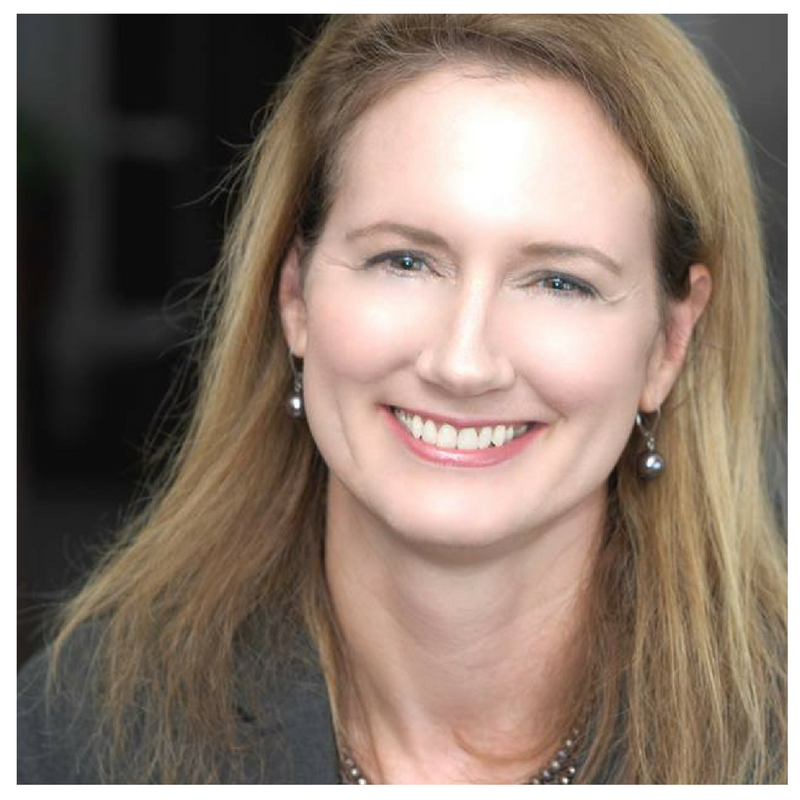
Connect with Jennifer:
Website: http://www.jenniferhmoyer.com/
Subscribe
Sign up to get the latest weekly blogs sent straight to your inbox


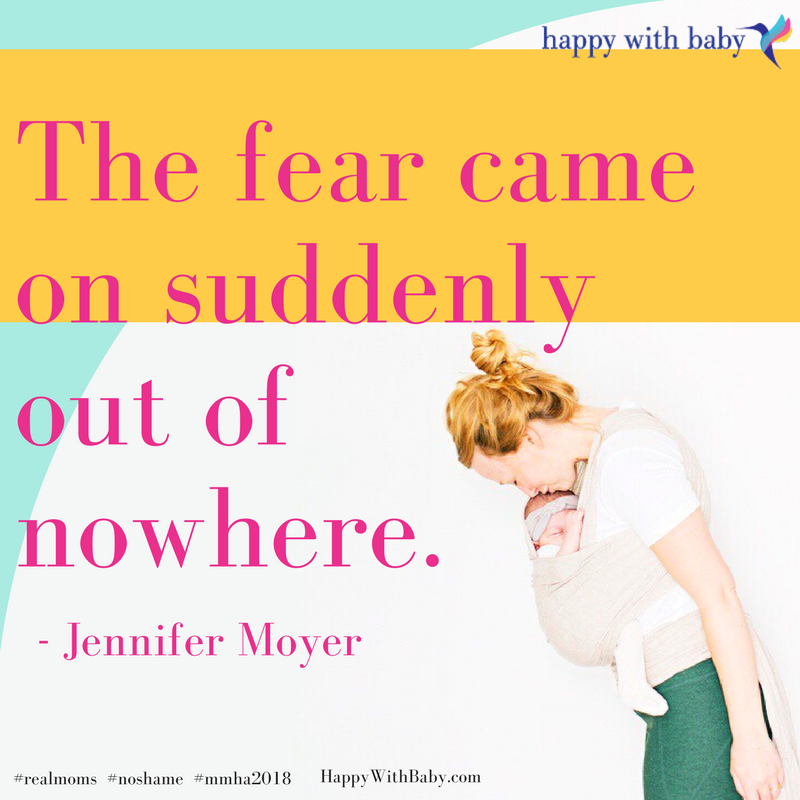
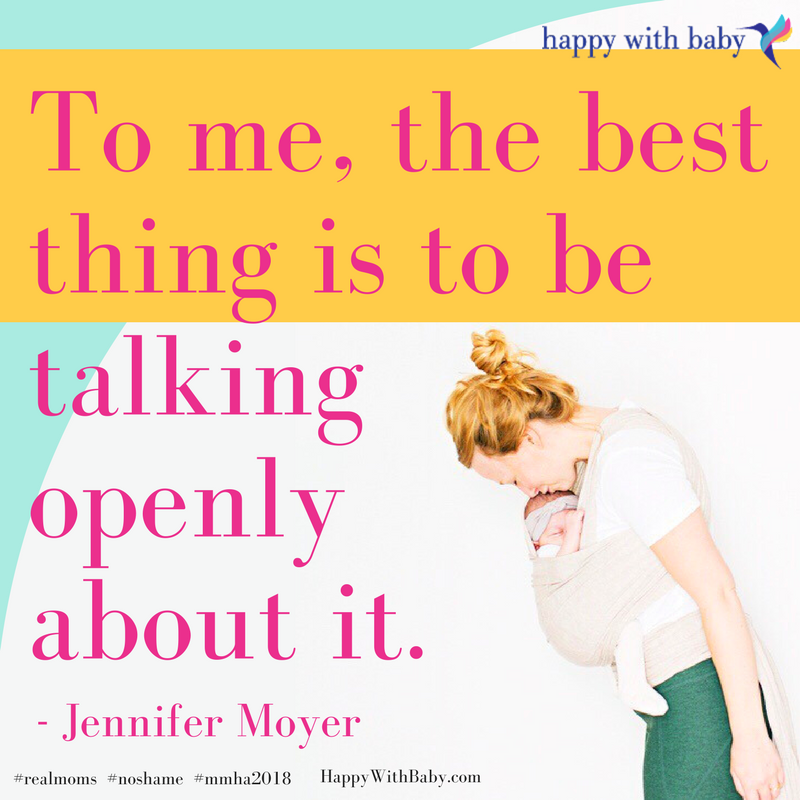
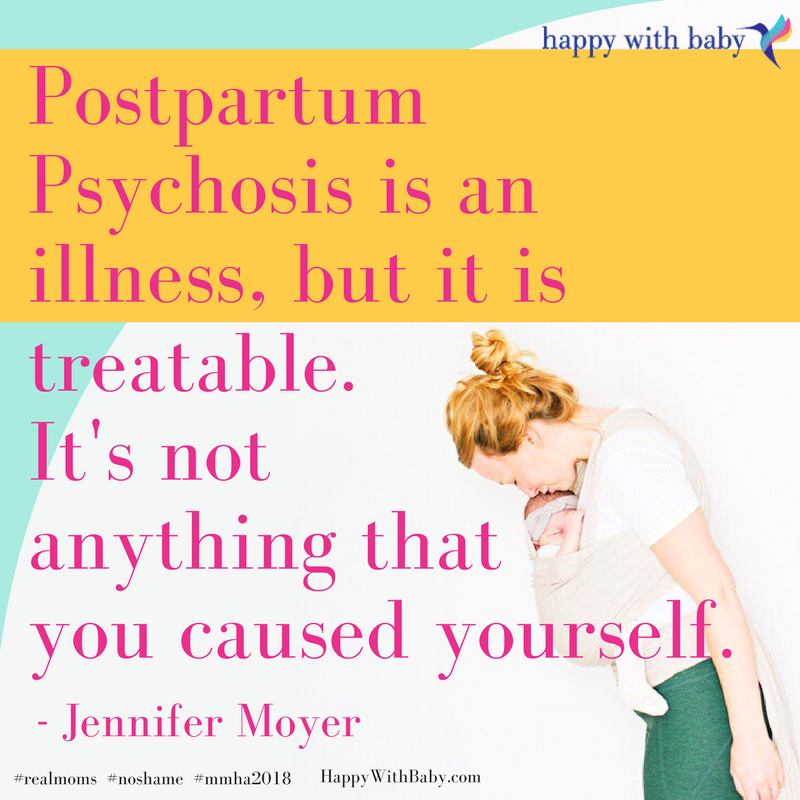
0 comments
Leave a comment
Please log in or register to post a comment